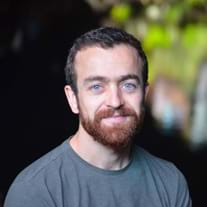
Geoffrey Terral, PhD
2023 Leon Levy Scholar
Albert Einstein College of Medicine
Institution
Albert Einstein College of Medicine (Advisor: Dr. Renata Batista-Brito)
Sub-disciplinary Category
Systems Neuroscience
Previous Positions
- BS, University of JF. Champollion and University of Paul Sabatier III
- MS, University of Bordeaux
- PhD, Neurocentre Magendie (Advisor: Dr. G. Marsicano)
- Postdoctoral Researcher, Interdisciplinary Institute for Neuroscience (Advisor: Dr. L Roux)
Bio
Dr. Geoffrey Terral is a postdoctoral fellow with Dr. Renata Batista-Brito at Dominick P. Purpura Department of Neuroscience Albert Einstein College of Medicine. His work explores the role of long-range inhibitory neurons in regulating synchronous neocortical activity. To address this question, he uses a combination of in vivo two-photon calcium imaging, extracellular electrophysiology recordings and opto/chemo-genetic approaches. Before moving to New York, Geoffrey received his M.S. and Ph.D. in Neuroscience from Bordeaux University (France) under the supervision of Dr. Giovanni Marsicano and did a short postdoctoral training in the lab of Dr. Lisa Roux in Bordeaux (France). There, he investigated how cannabinoid receptors impact olfactory circuits and functions.
Research Summary
Examining the morphology and connectivity of inhibitory neurons and subsequently, their functional ability to generate brainwaves.
Technical Overview
Restful states such as sleep and quiet wakefulness are imperative for essential functions, such as learning, memory consolidation, and emotion regulation. During these states, neocortical rhythms are dominated by low-frequency oscillations, which are associated with preserving resting states through the suppression of the perception of external stimuli. However, as little is known about their neuronal circuitry, Dr. Geoffrey Terral aims to examine the anatomy of somatostatin and neuronal nitric oxide synthase cells, inhibitory neurons that are well placed to regulate these low-frequency oscillations. He will also investigate their functional ability by examining whether the activation of these cells generate synchronous neocortical activity. The lack of regulation of restful states could lead to a variety of problems observed in pathologies such as schizophrenia, ADHD, depression, or even death. Dr. Terral’s findings could increase scientists’ understanding of the neocortical dysfunction underlying deficits in attention, perception, and sleep present in such disorders.